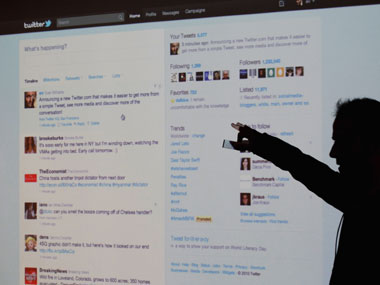By now, #OperationBlueVirus is trending thanks to the unspoken suggestion that one of the beneficiaries of the questionable services offered by a number of IT companies is Narendra Modi.
“In a long undercover operation, codenamed Operation Blue Virus, Cobrapost exposes about two dozen IT companies across the country to be running a shady business of reputation management on social media platforms, offering their clients fake fan-following on Facebook and Twitter, and are doing negative publicity against a political leader or a party, or a corporate house, at the behest of their opposite camp, all for money. For them, building or destroying reputations online is just a click-of-a-mouse away. Clients they are serving include corporate houses, big or small, NGOs, scam-tainted senior government officials, individual politicians and political parties,” Cobrapost’s press release says.
None of this is new and no sting operation was required to unravel these known knowns.
[caption id=“attachment_1257261” align=“alignright” width=“380”]  Representative image. Getty Images[/caption]
Brands have been gaming social media since social media existed, as have individuals and political parties. They’re ‘bought’ fans, they’ve ‘bought’ positive interaction and they’ve bought fans. Bots have inundated timelines with positive and negative opinion depending on which was required.
But a few of the ‘services’ offered are disturbing - and could cause serious trouble for the companies concerned and their clients.
They would do negative publicity against Netaji’s opponent, employing methods not necessarily ethical or legal.
They would post the negative content online from countries such as the United States or Korea, to avoid detection of its source.
They would use assembled computers for negative campaign and destroy them after the project is over.
They would use proxy codes on their computers such that their locations change every hour, making detection impossible.
They would use offshore IPs and servers to avoid tracing of the source of online content.
They would hack into the computers of other individuals for posting defamatory content using their IPs.
They would use Internet-based messaging system to circumvent TRAI regulations on mass SMS. This they would do using short codes instead of actual phone numbers to mask the identity of the sender.
They would accept payments only in cash to avoid paper trail to ensure that no connection is established between them and their client.
All these are in the area of gaming, and, as long as the content that they send out is purely designed to make one brand/party/politician popular and the direct opposition unpopular, there is nothing hugely sinister in the actions. They may not be ethical but, there is so much that we see in India that isn’t so, like the point about cash payments.
What is frightening is the suggestion that at least one company was prepared to go beyond social media and into the real world, offering to plant bombs and create real, and not virtual, disturbances with a particular view to frightening Muslims into venturing out to vote.
Once the powers that be analyse the Cobrapost sting, we will see the predictable demands for sweeping controls over social media and the chances are, in the current charged atmosphere thanks to the elections, we will see a knee-jerk reaction.
That would be unnecessary. While this problem concerns social media, the root of the reason why this problem has come to be lies in the real world. There is no action taken against users who publish libelous, defamatory and slanderous updates (even outside the context of politics and politicians). Laws already exist for sources of dangerous and inflammatory rumours. Many of the ‘services’ offered could have been offered in a pre-Internet era as well, such as the offer to create riots or accept payments in cash.
More than politicians, it is corporate India which needs to look at this sting closely. Elections come every few years, while brands and brand reputations are evaluated and judged every minute of the day. In the current instance, the focus is politics, but these services could so easily be used and misused as a weapon in corporate warfare.
If there is single impact that this sting has, it is that corporate India will now spend considerably more time and money on understanding, analyzing and reacting to social media.
And many of them will game it, too.


)
)
)
)
)
)
)
)
)



